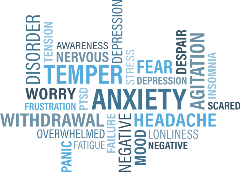Behavioral Health

Behavioral health is a major public health issue in the District of Columbia. Sadly, many of the legislative and regulatory initiatives around behavioral health are tied to other public health concerns, such as opioid addiction, maternal mortality, and health equity.
In partnership with the Washington Psychiatric Society, AMA, and American Psychiatric Association (APA), MSDC works to ensure that patients receive appropriate support for behavioral health issues, that the practice of psychiatry is supported in the District, and that psychiatrists are available to patients in the District.
MSDC was a proud supporter of the Behavioral Health Parity Act of 2017, which enshrined into law that all health plans offered by an insurance carrier meet federal requirements of the Wellstone/Domenici Mental Health Parity and Addiction Equity Act of 2008.
MSDC Statements and Testimony of Behavioral Health Issues
25th Council period information coming soon
Mayor Bowser Issues Emergency Order Addressing MedStar's MCO Status
On Wednesday, DC Mayor Muriel Bowser issued an emergency order ordering the Deputy Mayor of Health and Human Services to address the contractual dispute that would see MedStar not accept non-emergency Medicaid patients.
The order, seen here, directs Deputy Mayor Wayne Turnage to, "take such actions and implement such measures as may be necessary or appropriate to protect the health and safety of persons in the District of Columbia". The basis of the emergency order is the ongoing pandemic public emergency.
MedStar Family Choice was one of three insurers chosen for the District's managed care contract in 2020. However, a contract protest led to MedStar's removal as one of the MCOs this year. In August, MedStar informed the other two MCOs that it was terminating its contract with them, meaning Medicaid and Alliance beneficiaries would not have in-network access to MedStar facilities except for emergency room admissions. The Mayor's order in essence would extend that MedStar MCO contract for nine months past the September expiration date.
On Thursday, MSDC joined the DC Hospital Association, DC Primary Care Association, DC Behavioral Health Association, and DC Health Care Association in a joint letter to the Mayor and Council. The letter does not take a position on the contract dispute but rather urges both branches of government to work together on a long-term solution. The letter states:
We are still in the midst of the COVID-19 pandemic and it’s more important than ever to make certain there is no disruption for Medicaid beneficiaries and District residents who need access to all the essential primary, specialty and hospital care services and related support services. As the City’s largest group of health care providers, we recognize firsthand the lingering impact and negative consequences that limited access and delayed care can have on a patient’s health outcome. We can ill afford to create any barriers that will interfere with current or future health care visits, screenings, procedures, hospitalizations, or other necessary services. All patients, regardless of their health care plans, must have access to health care services when and where they need them. We must remain committed to addressing health care inequity and reduce barriers to care, not increase them.
The Deputy Mayor's office recently shared it is exploring reopening the contracting process to add substance abuse and behavioral health services to the contract. MSDC is planning a webinar on the ongoing MCO process and will share details when it becomes available.
Sample of Legislation MSDC is Tracking in Behavioral Health
(see the whole list of bills here)
What does it do? The bill requires licensed health providers to complete 2 hours of CME on suicide prevention, assessment, and screening.
MSDC position: MSDC opposes the bill as written as the language does not encourage physician wellbeing or sufficient awareness of suicide prevention.
Current status: The bill had a hearing with the Committee on Health on June 10.

Leave a comment